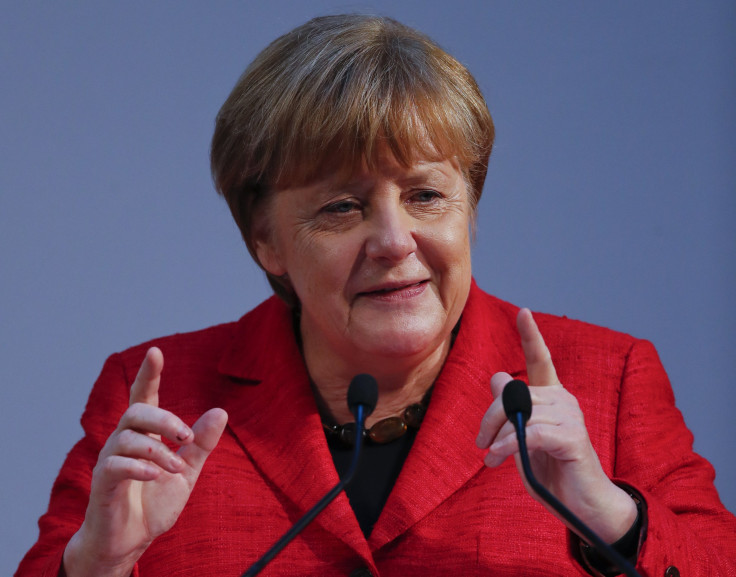Why Turkey And Germany Are Fighting Over Nazis: Berlin Bans Pro-Ankara Rallies, Angering President Erdogan

German Chancellor Angela Merkel attempted to ease tensions with the Turkish government Monday by citing the “special” relationship between the two countries, one day after Turkish President Recep Tayyip Erdogan referred to a ban on Turkish political rallies being held in Germany by his ministers as “Nazi practices.”
"To our Turkish partners, let us talk openly and critically, but let us remember the special meaning of our close relationship and let cool heads prevail," Steffen Seibert, Merkel's spokesman told local reporters.
Relations between Germany and Turkey faltered last week when German authorities canceled political rallies aimed at encouraging Turks living in Germany to vote in a pivotal referendum in Ankara. Turkey's justice and economy ministers had been scheduled to address the gatherings in support of Erdogan.
Roughly 1.4 million Turks in Germany have the right to vote on April 16th on the potential legislation that aims to boost Erdogan’s presidential powers while weakening those of the Turkish parliament. Ankara says the constitutional changes would make Turkey’s presidential system resemble that of the United States and France, but Erdogan's political opponents say the new policy would bolster his one-man rule over the country.
#Global #Angela_Merkel Germany urges calm in ‘Nazi’ row with Turkey: BERLIN: Chancellor Angela Merkel on Monday… https://t.co/vFsBwj4JW1 pic.twitter.com/CzCCj5gHMV
— 🇵🇰 Latest Pakistan News (Being News) 🇵🇰 (@latestbreaking1) March 6, 2017
Erdogan accused Germany of pushing for a "No" vote on the referendum Sunday, telling a women's rally in Istanbul, “ Germany, you are not even close to democracy. Your practices are not different from the Nazi practices of the past."
Merkel said her government did not play a part in the decision to cancel the rallies, but that local municipal authorities had done so because they didn’t have enough resources to patrol the large crowds. Germany has the biggest population of Turks living abroad, with roughly three million living there.
German politicians and human rights activists called on the federal government to ban Turkish politicians from speaking in the country after German-Turkish journalist Deniz Yucel was arrested on Feb. 14 over allegedly writing terrorist propaganda. Erdogan has accused Yucel, a journalist for the German newspaper "Die Welt," of being a "German agent" amid his wide-scale crackdown on the freedom of the press following a failed coup d’etat on his government in July 2016. A representative of the German foreign ministry told Reuters that Erdogan’s claims were "absurd."
© Copyright IBTimes 2024. All rights reserved.






















